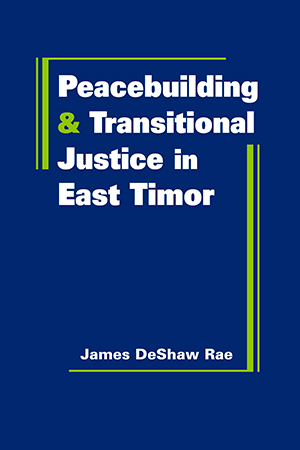
- 2009/255 pages
- A FirstForumPress Book
Peacebuilding and Transitional Justice in East Timor
Hardcover: $75.00
ISBN: 978-1-935049-12-8
Did the United Nations successfully help to build a just, peaceful state and society in postconflict East Timor? Has transitional justice satisfied local demands for accountability and/or reconciliation? What lessons can be learned from the UN’s efforts? Drawing on extensive field work, James DeShaw Rae offers a grassroots perspective on the relationship between peacebuilding and transitional justice.
Rae traces the effects of the political violence perpetrated in East Timor during the Indonesian occupation, as well as the UN-authorized intervention and the ultimate formulation of the rebuilding effort. In the process, he explores the results of hybrid (mixed domestic-international) tribunals and the attempt to conduct war crimes tribunals and truth and reconciliation commissions in tandem. Not least, his account of the impact of international actors working with the East Timorese to construct a new nation from the ground up suggests important policy prescriptions for all postconflict societies.
Rae traces the effects of the political violence perpetrated in East Timor during the Indonesian occupation, as well as the UN-authorized intervention and the ultimate formulation of the rebuilding effort. In the process, he explores the results of hybrid (mixed domestic-international) tribunals and the attempt to conduct war crimes tribunals and truth and reconciliation commissions in tandem. Not least, his account of the impact of international actors working with the East Timorese to construct a new nation from the ground up suggests important policy prescriptions for all postconflict societies.







